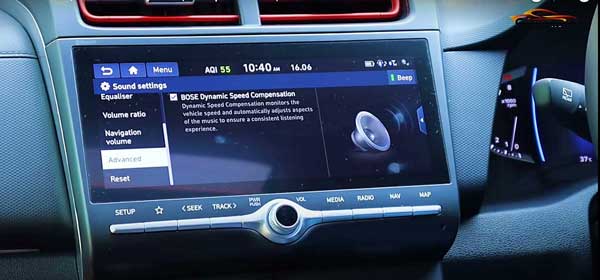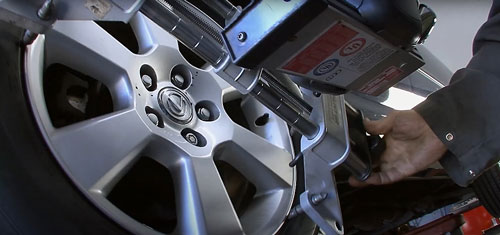What Happens If I Remove the ABS Fuse?
Is it worth removing the anti-lock braking system (ABS) fuse in your car, considering the main consequences? The ABS system is an automotive staple, playing an important role in modern road safety and maximizing the power applied during braking.
This advanced technology dynamically modulates brake pressure to reduce wheel locking and aggressive slippage, ultimately resulting in improved handling, especially in emergency braking situations or in road conditions with strong
Essential removal of the ABS fuse disables this important protection, increasing the chances of slipping when the brakes are applied hard, causing a loss of control, and what more than that, it can prevent a vehicle from meeting safety standards and passing inspections, which could lead to legal issues.
While there may be specific circumstances where it is necessary to temporarily disable the ABS for specialized tasks such as diagnostics, it is important to remember that ABS is designed to enhance overall safety and should be used with caution is so practical and important, ensuring safety and considering legal considerations.
Understanding the ABS System
Anti-lock braking system (ABS) is an essential safety feature in modern vehicles, designed to increase braking efficiency and control in emergency situations Its primary function is to prevent wheel locking in when the driver applies the brakes hard. This is especially important on slippery, wet roads, where a locked wheel can cause a loss of steering control.
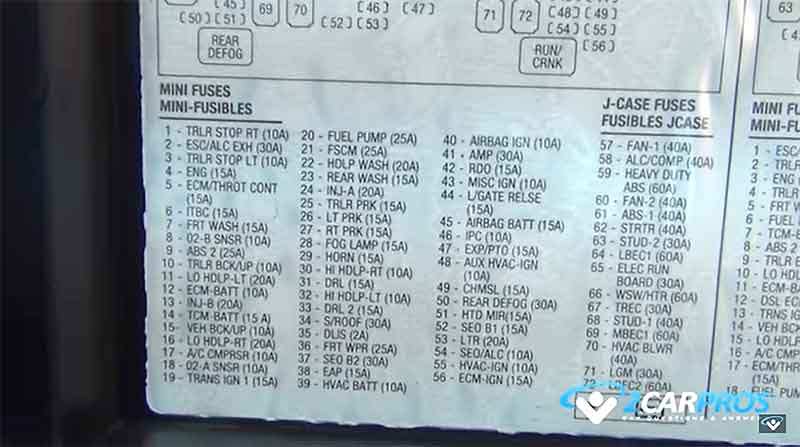
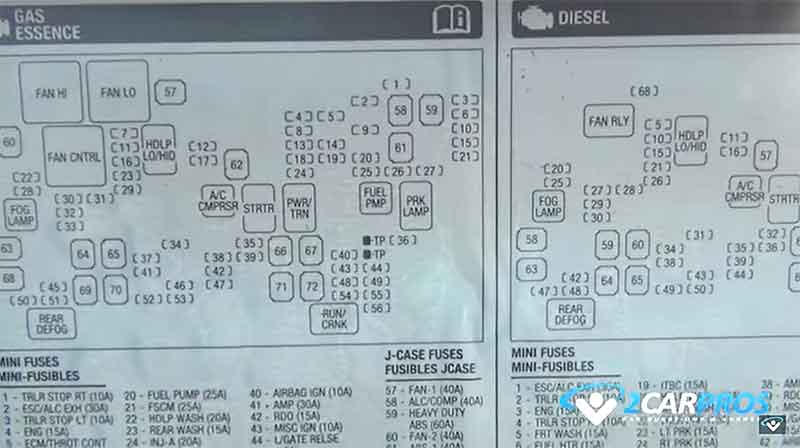
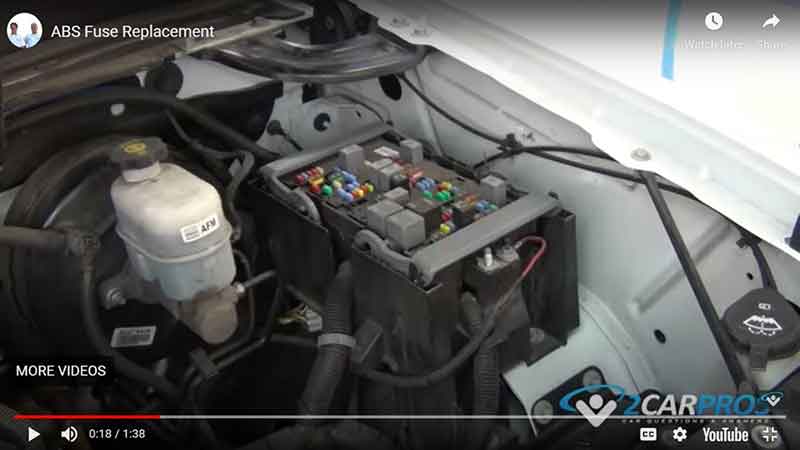
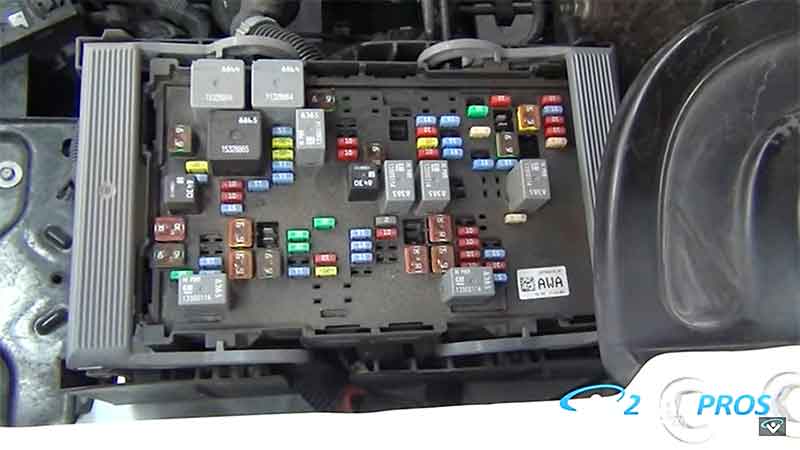
Photos: ABS Fuse location
ABS achieves its objectives through a complex but highly effective tool that includes several key elements:
1. Wheel Speed Sensors: Each wheel of the car has a wheel speed sensor. These sensors continuously monitor wheel rotation. When a cycle begins to decelerate rapidly, indicating a shutdown, the sensor immediately detects this reversal.
2. Electronic Control Unit (ECU): The ECU is the brains of the ABS system. It receives data from the wheel drive devices and continuously analyzes not only the speed of each wheel but also the overall speed of the vehicle. It compares this information to determine if a cycle is at risk of being shut down.
3. Hydraulic valves: The ABS system has hydraulic valves strategically mounted on the brake lines of each wheel. The ECU controls these valves. When the ECU senses the possibility of cycle locking, it intervenes by rapidly opening and closing these valves. This process independently adjusts the brake pressure applied to each wheel.
4. Brake oscillations: As hydraulic valves open and close rapidly, brake pressure oscillates. What drivers experience through the brake pedal when ABS is engaged is a vibrating sensation. This serves an important purpose, as it prevents the wheels from fully engaging. Instead, the tires maintain some traction, allowing the driver to steer while applying maximum braking force.
The ABS system is a sophisticated safety feature that plays an important role in preventing accidents in difficult or emergency braking situations. It does so by tightly controlling and adjusting brake pressure at each wheel, preventing wheel locking and allowing the driver to control the vehicle
Removal of the ABS fuse can have serious consequences, as it disables this important safety system, and can result in increased braking distance, loss of steering control, and the risk of a crash especially on in poor road conditions No understanding and no knowledge.
Consequences of Removing the ABS Fuse
After examining the operation of the anti-lock braking system (ABS), it is important to examine the possible consequences of removing the ABS fuse from your vehicle.
1. Loss of anti-lock brake function: The immediate consequence is complete loss of the anti-lock brake system. Your brakes will return to normal operation, and the force that keeps the wheels from locking up during hard braking is eliminated.
2. Increased risk of crashes: Locked wheels without ABS are a major concern. If your wheels lock up while braking, the car skids. This impairs your ability to handle and control your vehicle, increasing the risk of accidents, especially on poor road conditions such as rain, snow and ice
3. Stop length: ABS is designed to improve stability and ensure the vehicle is usable. Failure to do so could result in you stopping at a reasonable distance, which could jeopardize your safety and the safety of others on the road.
4. Tire Wear: Prolonged wear, resulting from removal of ABS accelerates tire wear. This not only increases maintenance costs, but also reduces tire life, requiring frequent replacement.
- Legal Consequences: Many courts consider it illegal to modify or disable ABS and other safety features. If found, you could be subject to fines or legal penalties, increasing the risks of ABS removal.
- Impact on Resale Value: Removing the ABS fuse can reduce the value of your vehicle’s resale value. Prospective buyers should be wary of buying a car with safety features damaged, which affects your ability to sell at the price you want.
- Loss of insurance premiums: Some insurance policies stipulate that accidents will not be covered if you are found to have deliberately consumed safety features such as ABS. Not only does this put your financial security at risk, but it exposes you to potentially expensive out-of-pocket expenses.
- Impaired safety: After all, removing the ABS fuse is a serious problem for the safety of your car. It significantly increases the risk of accidents, especially in emergency braking or challenging driving situations. Therefore, changing the ABS system should be strongly discouraged, as it not only puts your safety at risk but also that of fellow road users. Understanding the importance and role of ABS in the safety of modern vehicles is key to making informed decisions about the maintenance and preservation of this important safety feature
Legitimate Reasons for Removing the ABS Fuse
Is there ever a good reason to remove the ABS (Anti-lock Braking System) fuse from your car? This is generally not advisable, but there are exceptional circumstances in which it can be done for legitimate purposes.
1. OBJECTIVES OF FAILURE: The situation in which the ABS fuse can be removed temporarily is during diagnosis. Technicians can do this to isolate the ABS system while troubleshooting internally. By removing the fuse, the ABS can be evaluated independently of the rest of the braking system, helping to pinpoint problems more accurately.
2. Racing or road use: Those who enjoy racing or road activities sometimes choose to activate the ABS system. This is usually done to improve control in particular driving conditions. However, it is important to emphasize that such practices should only take place in controlled environments, where drivers are fully aware of the associated risks and have the knowledge to operate the vehicle without the assistance of ABS around
3. Older cars: For older cars, some may not be equipped with an ABS system. In such cases, drivers must rely on their driving skills and experience to safely maintain brakes. These cars do not have modern ABS technology, so there is no removable ABS fuse.
While there are a few situations where ABS fuse removal is warranted, caution and responsibility are essential. ABS plays an important role in improving road safety and managing emergency braking situations. Use without common sense or knowledge leads to longer braking distances, reduced steering control, and increased risk of accidents, especially on slippery, wet roads It is generally best if you leave the ABS system on it doesn’t matter, to be as secure as others on the road It makes sure it works as intended.
The Importance of Preserving ABS Safety Systems
Is it safe practice to remove the ABS (Anti-lock Braking System) fuse from your vehicle? This is generally not wise and can have serious consequences for the safety and performance of the vehicle. The ABS system plays an important role in preventing wheel locking and ensuring compliance in emergency braking situations.
While there are legitimate reasons to temporarily disable the ABS, such as detection or exceptional driving conditions, this should be done when the associated risks are fully understood and with community only in accordance with local laws
ABS is a major safety feature in modern cars. It has prevented many accidents by preventing the wheels from locking up, especially in poor road conditions. If you are concerned about your vehicle’s ABS system or performance, it is wise to seek the guidance of a qualified mechanic.
Any problems can be diagnosed and dealt with while maintaining the integrity of your vehicle’s safety features, which are there to protect you and your fellow road users It is always wise to take road safety precautions and you have maintained the integrity of your vehicle safety systems. Removing the ABS fuse is a step that, with careful consideration, should only be undertaken in rare cases of absolute necessity.




